- Student Services Online
- Class search
- Student email
- Change my password
- MyCDES+ (job board)
- Course outlines
- Learning essentials
- Libraries and Learning Services
- Forms, policies and guidelines
- Campus Card
- Enrol in courses
- Postgraduate students
- Summer school
- AskAuckland
- Student Hubs
- Student IT Hub
- Student Health and Counselling
- Harassment, bullying, sexual assault and other violence
- Complaints and incidents
- Career Development and Employability Services (CDES)
- Ratonga Hauātanga Tauira | Student Disability Services (SDS)
- Rainbow support
- Emergency information
- Report concerns, incidents and hazards
- Health and safety topics
- Staff intranet
- PeopleSoft Financials
- Space and resource booker
- Enterprise Insights Portal
- PeopleSoft HR
- Forms register
- Jobs at the University
- Opportunities
- Update your details
- Make a donation
- Publications
- Photo galleries
- Video and audio
- Career services
- Virtual Book Club
- Library services
- Alumni benefits
- Office contact details
- Alumni and friends on social media
- No events scheduled for today You have no more events scheduled for today
- Next event:
- Show {0} earlier events Show {0} earlier event
- Event_Time Event_Name Event_Description
- My Library Account
- Change Password
- My Service requests
- Edit Profile
- My GPA Grade Point Average About your GPA GPA not available Why can't I see my GPA?
- My Progress
- Points Required Completed points My Progress Progress not available All done!
- Student hubs
- Health and counselling
- All support
- Health, safety and well-being
Breadcrumbs List.
- Ngā akoranga | Study
- Study options
- Find a study option
- You are currently on: Postgraduate study

Postgraduate study in Nursing
What can you study in nursing.
You can study Nursing at postgraduate level in Bachelor of Nursing (Hons) , Master of Nursing , or Master of Nursing Science .
The focus for postgraduate nursing study is the enhancement of clinical nursing practice, leadership qualities, and development of advanced practice through education.
Postgraduate study is about investigating, analysing, critically evaluating, reflecting and responding to the challenges posed by practice and the academic environment.
Programme structures are flexible and provide opportunities for nurses to design programmes of study that are appropriate for the learning goals they wish to achieve and that are relevant to their practice areas.
You can also specialise in Advanced Nursing and Mental Health Nursing .
Explore the postgraduate courses you can take for a Nursing specialisation
You can also find out more about postgraduate study in nursing in the Nursing Postgraduate Handbook, available on the Faculty of Medical and Health Science's prospectuses and handbooks webpage .
Where can postgraduate study in Nursing take you?
Potential careers include advanced nursing practice, community, gerontology, paediatric, hospital, or primary healthcare, mental health, or nursing education, management or research.
Jobs related to Nursing
- Clinical Nurse Specialist
- Nurse Educator
- Nurse Practitioner
- Nurse Researcher
- Occupational Health Nurse
Further study options
- Doctor of Philosophy
Scholarships and awards
Each year we award scholarships and prizes to thousands of students.
Find out about the scholarships you may be eligible for, search available scholarships or begin an application by visiting Scholarships and awards .
Postgraduate programmes
- Bachelor of Nursing (Honours)
- Master of Nursing
- Postgraduate Certificate in Health Sciences
- Postgraduate Diploma in Health Sciences
Related subjects
- Advanced Nursing
- Mental Health Nursing
- Nursing Practice
- Palliative Care
- Skip to main content

- All countries /
- Australasia /
- New Zealand /
- All study levels /
- Postgraduate /
- Health and Medicine /
12 Universities in New Zealand offering Postgraduate Nursing degrees and courses
More Information
Are you looking for Postgraduate courses in Nursing? Here you can find course providers offering full-time, part-time, online or distance learning options.
You've reached your limit of 10 Favourites
Auckland University of Technology
THE World Ranking: 401
The University of Auckland
THE World Ranking: 150
University of Canterbury
THE World Ranking: 501
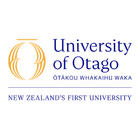
The University of Otago
THE World Ranking: 301
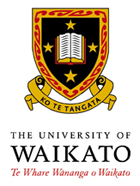
The University of Waikato

Victoria University of Wellington

Waikato Institute of Technology

Wellington Institute of Technology
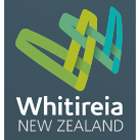
Whitireia New Zealand
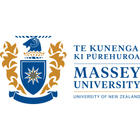
Massey University
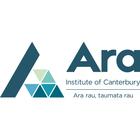
Ara Institute of Canterbury Limited

Eastern Institute of Technology
There are more Nursing courses available in Australasia
- Care Of Dying (Nursing)
- Children'S Nursing
- Mental Health / Addiction Nursing
- Mental Health Nursing (General)
- Nursing Specialisms
- Nursing Studies
- Practice Nursing
- Registered General Nursing
- New Zealand
- Hawke's Bay
- Manawatu-Wanganui
- Study level:
- Postgraduate
- Graduate Certificates & Diplomas
- Masters Degrees
- Doctoral Degrees
- Study mode:
- Online/Distance
Filter your results
Tell us about you.
- Nationality Select country Select country
- My current qualification is from Select country Yes No Select country Select country
- Current qualification {0} is not applicable for the study level you selected below. Qualification Qualification
- Grade type (only one grade type for your qualification) Grade type Grade type
- My score (current or expected) Please select Please select Please select Please select Please select Please select
Tell us your preferences
- Subject Nursing
- Qualification Postgraduate
- Destination New Zealand
- Study options
- Annual tuition fees
Subject areas
Qualification, destination.

Postgraduate Diploma in Nursing
- About the Programme
- Entry Criteria
- Your First Day
- Prospectus (Course Guide)
Course details
- Feb 2025 Jul 2025
- Fee dependent on modules selected
- Hamilton City Campus
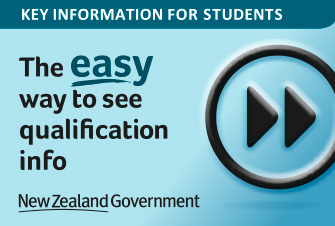
This programme provides registered nurses with the opportunity to extend their clinical knowledge and skills in a specific area of practice including registered nurse prescribing in primary health and speciality teams. It is delivered through a combination of block courses and online. A candidate may take up to four years to complete this postgraduate diploma.
The programme consists of four modules: two core modules and two practise modules covering a range of advanced speciality practice areas.
After successfully completing any two postgraduate nursing modules students may choose to exit with the Postgraduate Certificate in Nursing . They can then return to complete the postgraduate diploma at a later date provided this is within four years of their first enrolment in the Postgraduate Diploma in Nursing programme.
Registered Nurse Prescribing endorsement
Wintec offers prescribing practicums for nurses who want to become registered nurse prescribers in primary health and speciality teams.
The programme is in response to the recently introduced regulation that allows suitably qualified nurses working in collaborative teams to prescribe from a restricted list of medications for people with common and long-term conditions. The Wintec Postgraduate Diploma of Nursing – Registered Nurse Pathway is specifically for nurses who have at least three years of experience and are looking to become a registered nurse prescriber. The programme, which will take two years (part-time) to complete, requires the study of pathophysiology, pharmacology, assessment, clinical reasoning and long-term and related conditions, prior to undertaking a supervised prescribing practicum of 150 hours.

Download our postgraduate course guide
View programme modules.
Note: no value in the pre/co-requisite columns means there are no pre/co-requisites for that module. All modules listed below have an individual module credit value of 30 credits. The range of modules offered will vary from year to year.
Group A: Compulsory module
Group B: Core module
Group C: Compulsory modules for the Registered Nurse Prescribing endorsement
Group D: Elective modules
Group E: Compulsory modules for the endorsement in M ā ori Mental Health
Career/further opportunities
Employment in advanced nursing practice positions, management, research or independent practice.
If you have any enrolment questions, send them to [email protected] and we'll get back to you as soon as possible.
To discuss your pathway options within the programme and what modules would best compliment your area of work, contact the postgraduate team at [email protected]
About the faculty
The Postgraduate Office at Wintec has been created to support postgraduate students in their studies and research by providing dedicated resources and advice. Wintec also has a dedicated Research Office which is the hub of research at Wintec and caters to all researchers, both staff and students.
Hamilton City Information Session
Explore study options at our Hamilton City Campus available for Semester 1 2025! This whānau-friendly event is a great opportunity to ask any pātai (questions) you may have and get your enrolment sorted.
More Upcoming Events
Disclaimers
* Fees disclaimer applies
Entry criteria
- An undergraduate Nursing degree, or other undergraduate degree assessed as relevant by the Centre for Health and Social Practice Postgraduate Programme Committee, conferred by a New Zealand tertiary education institution, or
- a qualification approved as equivalent by the Postgraduate Programme Committee.
b. Candidates who have not gained a relevant undergraduate degree or equivalent qualification may submit a portfolio for informal transfer of credit and, if the application is successful, may be admitted on an equivalent basis.
- Have at least two years’ of clinical experience in the mental health field, gained within the past five years, and
- identify as Māori, demonstrating knowledge of their whānau, hapū and iwi, and
- demonstrate understanding of the role of tikanga Māori within their own nursing practice.
- Have completed three years’ equivalent full-time practice in an area of common and longterm conditions nursing.
- Demonstrate up-to-date clinical knowledge relevant to their intended area of prescribing practice and have attained a B grade in NURS801 Integrated Science and Assessment, NURS804 Pharmacology for Nursing Practice, and NURS812 Advanced Practice in Longterm Conditions.
- Have a collaborative working relationship within an interprofessional team and the support of a designated, authorised prescriber (DAP), (a vocationally registered medical practitioner or nurse practitioner who has current indemnity insurance ) as a mentor who will provide clinical supervision for prescribing practice.
- Have professional/personal indemnity insurance.
- Be employed within an organisation that enables nurse prescribing through policy, audit, peer review and accessibility of continuing education, while undertaking the prescribing practicum.
- Have documented approval from an area of clinical practice in which to undertake the prescribing practicum.
Selection Criteria In addition to the above criteria, all candidates must hold a current New Zealand practising certificate as a Registered Nurse.
Unless otherwise stated, all candidates must have completed a minimum of six months of post-registration clinical experience within the past five years.
All candidates must be employed for a minimum of 16 hours per week.
- Whether candidates meet the pre-requisites for each paper, and
- commitment to study as demonstrated at admission interviews, and
- references supplied.
Where the industry and/or community have indicated a need for graduates from the programme with a particular specialisation, and/or have provided sponsorship for candidates to undertake modules leading to a particular specialisation, applicants for that specialisation and/or those modules may be given priority.
Candidates will complete their enrolment before the commencement of each semester.
Candidates for the Postgraduate Diploma in Nursing (Māori Mental Health) will normally be enrolled in a part-time programme of study over two years, to enable them to fulfil the clinical requirements of that endorsement stream.
Candidates for the Postgraduate Diploma in Nursing, Registered Nurse Prescribing endorsement, will normally be enrolled in a part-time programme of study over two years, to enable them to fulfil requirements for the supervised Prescribing Practicum.
English Language Requirements Candidates who have English as a second language are required to have an International English Language Test System (IELTS) Academic band score of 7.0, with no band score less than 7.0; or equivalent. The language assessment must be less than two years old at the time of application.
Check what documents are required to enrol in this programme. To ensure you receive the correct information for programme regulations, please download the document below.
Click here to view the Internationally Recognised English Proficiency Outcomes for International Students Table.

To check what you need to gain direct entry to a course, review the entry criteria available on each programme page. These assist you in understanding what qualifications or experience are typically required to gain entry. You can contact our team at [email protected] or 0800 2 Wintec at any time for further guidance.
Your first day
Are you ready for your first day of class? Check out your start date and where you need to be. You can also find useful information about studying at Wintec on our welcome page .
Programme information will be emailed to you approximately 2–4 weeks before your first workshop or at the start of your module.
What you will need
Logins for computer access All course information, workshop timetables, and relevant content will be available online through Moodle .
Computer requirements We require students to have access to a device, such as a laptop or a smartphone, that has access to a video player, PDF reader and Microsoft software. Find more about device specifications here .
Timetable information
How to find your way around, parking and bus information, he reo pōwhiri, your official welcome to wintec.
Tēnei te mihi mahana ki a koe e piki nei, e kake nei ki te Kuratini o Waikato.
You are warmly invited to attend the official welcome to Wintec for all new students, staff and whānau (family) at either our marae, Te Kōpū Mānia o Kirikiriroa or Rotokauri campus. The pōwhiri is a welcoming ceremony involving mihimihi (speeches), waiata (singing), and will conclude with kai timotimo (light refreshments). Please gather at the campus hubs, and a staff member will guide you through our pōwhiri.
Click here to find out when the next pōwhiri will be.
Paying for your study
Course-related costs, additional information, purchasing textbooks.
If your programme requires you to have access to textbooks, these can be purchased through a range of suppliers listed below:
New Zealand-based suppliers
- Campus Books (previously Bennetts)
- Academy Books
- TextbooksRUs
General book suppliers
- The Book Depository
- Google Books
First aid certificate
Health status, clinical placement, prospectus (course guide).
The Wintec Prospectus (otherwise known as a course guide) outlines everything you need to know about Wintec. It contains information about the Wintec campuses, student life, and the programmes that are on offer.
Access your copy of the Wintec Prospectus
The Wintec Prospectus (course guide) is available by downloading the file - click on the document below to access the file. Alternatively, to request a copy via email or the post, please complete the form below.

Request an emailable or printed copy of the Prospectus
Need help want to know how to get started.
Leave your details here and we will come back to you:
Wintec is part of Te Pūkenga - New Zealand Institute of Skills and Technology Learn More about Wintec Te Pūkenga.
Learn with purpose
Explore Te Pūkenga

- About Te Pūkenga | Privacy Notice
Copyright © 2022 Wintec
This site uses cookies to identify visitors and track usage so we can improve the user experience for future visitors. By continuing without changing your cookie settings, we assume you agree to this.
Please read our cookie policy to find out more.
Postgraduate courses for registered nurses
Special topic: Infection Prevention and Control
Two papers offered in 2024:
- NURS 471 Special Topic: Foundations of Infection Prevention and Control
- NURS 472 Special Topic: Infection Prevention and Control in Practice
For further information and admissions enquiries, contact:
Co-ordinator, Student Experience Email [email protected]
Clinically-focused programmes to advance your practice

We offer programmes designed to help you advance your practice. Most courses are distance-taught, with block courses at our Christchurch campus.
Postgraduate nursing pathways (PDF)
Postgraduate certificates
- Postgraduate Certificate in Health Sciences (Nursing – High Acuity) (PGCertHealSc)
- Postgraduate Certificate in Health Sciences (Nursing – Primary Health Care) (PGCertHealSc)
- Postgraduate Certificate in Health Sciences (Nursing – Leadership and Management) (PGCertHealSc)
- Postgraduate Certificate in Health Sciences (Nursing – Gerontology) (PGCertHealSc)
- Postgraduate Certificate in Health Sciences (Advanced Clinical Nursing) (PGCertHealSc)
Postgraduate diplomas
- Postgraduate Diploma in Health Sciences (Nursing) (PGDipHealSc)
- Postgraduate Diploma in Health Sciences (Nursing – Primary Health Care) (PGDipHealSc)
- Postgraduate Diploma in Health Sciences (Rural Nursing) (PGDipHealSc)
- Postgraduate Diploma in Health Sciences (PGDipHealSc) - Registered Nurses who are studying to become an RN Designated Prescriber are required to undertake this programme of study. Potential candidates for this programme of study must seek departmental approval prior to applying for this programme.
Masters' degrees
- Master of Advanced Nursing Practice (MAdvNP)
- Master of Health Sciences (Nursing) (MHealSc)
- Master of Health Sciences (Nursing – Clinical) (MHealSc)
We also offer the Master of Nursing Science (MNSc) degree. This is a two-year pathway to the nursing profession, and is not designed for registered nurses.
See also: Postgraduate research opportunities

For further information
If you have any queries about your eligibility or your proposed programme, it is preferable that you resolve these before making a formal application.
We welcome the opportunity to discuss your proposed courses with you.
Please contact the Coordinator, Student Experience at UOC: Email [email protected]
You are using a very outdated browser, which means that some of the features may not work as intented. Please upgrade your browser to improve your experience.
Loading ...
The application is loading, please wait.
You are using an outdated browser. Please upgrade your browser to improve your experience.
We use cookies to help us understand how you use our website so we can improve your experience. Visit our Website Privacy Statement or our cookies page .
Postgraduate Diploma in Nursing – PGDipNurs
Keen to take the next step in your nursing career? The Postgraduate Diploma in Nursing (PGDipNurs) will advance your practice and prepare you for further development towards senior nursing roles.
Entry requirements
- Qualification structure
- Courses & specialisations
- Fees & scholarships
- Careers & jobs
Type of qualification
Level of study.
Once you’ve graduated with a bachelor’s degree – or have equal experience – you can study at the postgraduate level. Doctoral qualifications require additional entry requirements.
More about study levels
Our courses follow the New Zealand Qualification Framework (NZQF) levels.
Find out more about NZQF levels
Time to complete
Where you can study.
- International students
International students are not New Zealand citizens or residents.
Definition of New Zealand citizens and residents
Admission application due dates Course enrolment dates for accepted students Semester dates
Study a Postgraduate Diploma in Nursing – PGDipNurs
Most students undertaking postgraduate study in nursing are in full-time practice and study part-time. Several postgraduate courses in nursing are delivered via ‘distance learning’ and/or ‘block mode’. These can include compulsory face-to-face teaching in on-campus contact workshops, web-based teaching, relevant readings and other study material. It means the courses are available if you are in employment and located at a distance from the university.
Learn from the best in your field
You’ll learn from academics and professional clinicians who are experienced registered nurses. Their expertise in practice and research drives the development of relevant, up-to-date course content, teaching, and assessment of your work.
You’ll be supported all the way
There is always plenty of help at hand. Along with contact with your lecturers, learning consultants in the Centre for Learner Success are available to support your study and academic writing skills. Each library has a subject librarian who supports you on campus or at a distance.
Find out more about nursing at Massey
See the Study nursing page for more information.
Further study
You can progress to a Master of Nursing as preparation for advanced practice roles and/or Nurse Practitioner registration.
A PGDipNurs is a good fit if you:
- successfully completed a bachelor’s degree or equivalent
- wish to develop and advance your professional practice
- seek to enhance your contribution to people’s health and wellbeing.
Admission to Massey
All students must meet university entrance requirements to be admitted to the University.
- Massey University entry requirements
Specific requirements
To enter the Postgraduate Diploma in Nursing you will:
- have been awarded or qualified for a relevant bachelor’s degree or equivalent qualification, and
- have New Zealand Nursing Council registration or equivalent.
You will need to provide copies of all official academic transcripts for studies taken at all universities other than Massey University.
Admission criteria for course 168750 Registered Nurse Prescribing Practicum:
Note that in order to be admitted to the Registered Nurse Prescribing Practicum course, which is part of the Postgraduate Diploma in Nursing, you will have:
- completed course 168733 Physiology and Pathophysiology, and
- achieved at least a B grade in courses 168728 Assessment and Clinical Decision-Making and 168734 Clinical Pharmacology, and
- the Nursing Council requires you to have completed three years’ equivalent full time practice in the area of practice being prescribed in.
You may need to upload a revised CV ensuring your practice areas are fully detailed, before you will be approved into this course.
English language requirements
To study this qualification you must meet Massey University's English language standards.
- Massey University English language requirements
Time limits for Honours, Distinction and Merit
Where your qualification is completed within the stated time limit and to a high standard, you may be able to graduate with Distinction or Merit.
- Look for information under ‘Student Progression’ in the General Regulations for Postgraduate Degrees, Postgraduate Diplomas and Postgraduate Certificates.
- Contact us through the Get advice button on this page if you have any questions.
Prior learning, credit and exemptions
For information on prior learning, exemptions and transfer of credit or other questions:
- review the Recognition of Prior Learning regulations
- contact us through the Get advice button on this page.
English language skills
If you need help with your English language skills before you start university, see our English for Academic Purposes (EAP) courses.
Meeting requirements for industry membership
Postgraduate diploma in nursing for nurse prescriber training.
After you have finished the Postgraduate Diploma you must apply to the Nursing Council, pay the fee and submit all portfolios, etc before you can become a Nurse Prescriber.
Maximum time limits for completion
There are maximum time limits to complete postgraduate qualifications. If you do not complete within the maximum time, you may be required to re-apply for the qualification if you wish to continue your studies.
Official regulations
To understand what you need to study and must complete to graduate read the official rules and regulations for this qualification .
You should read these together with all other relevant Statutes and Regulations of the University including the General Regulations for Postgraduate Degrees, Postgraduate Diplomas, and Postgraduate Certificates.
Returning students
For returning students, there may be changes to the majors and minors available and the courses you need to take. Go to the section called ‘Transitional Provisions’ in the Regulations to find out more.
In some cases the qualification or specialisation you enrolled in may be no longer be taking new enrolments, so may not appear on these web pages. To find information on the regulations for these qualifications go to the Massey University Calendar.
Please contact us through the Get advice button on this page if you have any questions.
Structure of the Postgraduate Diploma in Nursing
The School of Nursing recommends that you study the Postgraduate Diploma in Nursing part-time. If you want to study full-time, it is recommended that you contact the School to discuss your options.
Some postgraduate courses in nursing are delivered via ‘distance or block mode’ with compulsory or recommended face-to-face teaching in on-campus contact workshops, web-based teaching, relevant readings and other study material. This is designed to make the courses available if you are in employment and located at a distance from the university.
The Postgraduate Diploma in Nursing is awarded without a specialisation (endorsement).
The courses for this pathway are:
- 168733 Physiology and Pathophysiology
- 168728 Assessment and Clinical Decision-Making
- 168734 Clinical Pharmacology
- 168750 Registered Nurse Prescribing Practicum
Before you enrol in 168750 you will have passed the other three courses and have achieved at least a B grade in both of 168728 and 168734. You will also have completed three years’ equivalent full time practice in the area of practice being prescribed in, in accordance with the requirements of the Nursing Council .
Courses and specialisations
Credit summary, 120 credits.
- Core course(s) from Schedule A – At least 30 credits
- Elective courses from Schedule C – Up to 90 credits
Course planning key
Schedule a: core courses (choose at least 30 credits from).
Philosophical, ethical and methodological issues in relation to health research are examined. Selected quantitative and qualitative methods are explored in depth, in preparation for developing a research proposal for a thesis, or research project.
Restrictions: 168810, 168710
Evidence based practice (EBP) is an approach to problem solving and service provision based on the integration of “best evidence” with expert opinion and client/consumer perspectives. Students will develop EBP skills needed to critically evaluate information available from research findings, professional consensus statements and other sources of information, as well as communicating the results.
Translational and clinically relevant physiological and pathophysiological concepts as they apply to nursing practice are examined. Selected signs/symptoms are considered in terms of physiological processes at biochemical, cellular and functional levels. The emphasis is on normal physiological processes and their possible subsequent development to pathophysiological phenomena.
Schedule B: Elective courses
The health care systems of New Zealand and selected nations are compared and critically analysed from a management perspective.
Restrictions: 250742
Issues relevant to the efficient and effective delivery of health services are identified and examined.
Restrictions: 250746
Topics relevant to study and/or research into selected aspects of Nursing are investigated.
The multidimensional aspects of managing long term conditions within contemporary society, including self-management and models of chronic care, are examined and applied to improve health service delivery, and optimise health and independence.
An examination of a range of theoretical perspectives and sociomaterial and sociocultural aspects influencing clinical teaching and learning. Sociomaterial and sociocultural perspectives recognise that learning is influenced by the context, by human and non-human aspects, and by the variety of interactions occurring in the learning space. Alternative approaches to the design, delivery, and assessment of practice-based education are explored.
The multidimensional aspects of pain management including physiological and psychological components are examined. This knowledge is applied to refine nursing interventions in order to manage the pain experienced by people with acute or chronic ill-health conditions and those receiving palliative care.
This practical course advances students’ comprehensive assessment, formulation, clinical decision making, and treatment planning abilities in a range of clinical settings within mental health nursing. Emphasis is placed on trauma-responsive and culturally affirming practices alongside evidence-based tools, frameworks, and approaches.
Critique of a range of philosophical approaches and practical ethical decision-making frameworks, focussed on practice application across diverse nursing roles. Particular attention is brought to nurses’ role as moral agents in ‘everyday’ practice. Significant themes include social justice; links between biculturalism, cultural safety and ethics; and the ethical implications of the socio-political context of contemporary healthcare.
Selected modules related to providing a health service to older people are offered. The specialist knowledge base and skills for working in a variety of older persons' health settings will be critically examined and their application in particular practice contexts explored.
This practical course enhances students' clinical nursing practice through the teaching of advanced treatment planning and evidence-based mental health interventions. Key concepts and skills are drawn from psychological interventions such as Motivational Interviewing, Cognitive Behavioural Therapy (CBT), Dialectical Behavioural Therapy (DBT), and Acceptance and Commitment Therapy (ACT). Emphasis is also placed on reflective practice and clinician self-care.
Kawa Whakaruruhau - cultural safety is essential to improving health outcomes for Māori and other populations. This course aims to explore cultural systems and improve care through developing practitioner awareness of difference, decolonising, considering power relationships and barriers to clinical effectiveness. Practitioners can act to overcome racism within the structures, policies, and practices of their organisations and the health system.
The multidimensional aspects of wound management including physiological, pathophysiological and psychological components are examined and applied in the clinical practice setting.
Primary health care is central to improving equity. This course critiques the primary health care system and clinical practice on a continuum from health promotion and disease prevention to treatment, rehabilitation, and palliative care. By prioritising equity and complying with guarantees of Te Tiriti o Waitangi health professionals can achieve equitable health outcomes for Māori and other underserved populations.
Development of advanced nursing practice knowledge and skills and comprehensive holistic health assessment and clinical decision-making.
Leadership in professional practice is explored within the broader context of health care. The course critically examines the political, legislative, economic, ethical and cultural issues influencing nursing leadership and the provision of health services within particular scopes of practice.
Pharmacology topics relevant to advanced nursing practice are critically examined. These include pharmaceutics, pharmacodynamics, pharmacokinetics and a range of pharmacotherapeutic topics.
This course is designed for experienced critical care nurses seeking to enhance their knowledge and skills in the field of critical care. This course critically examines advanced concepts, evidence-based practices, and complex scenarios encountered in critical care settings. Students will develop a deeper understanding of critical care management, advanced nursing interventions, and leadership in complex environments.
This course provides a foundation of theoretical knowledge about critical care nursing. Principles, concepts, and practices of critical care nursing will be examined to prepare students in the provision of comprehensive care to critically ill patients. Trauma-informed care underpins nursing practice for this course, which recognises the individuality of each patient's experience, promoting a holistic approach to care. Trauma-informed care and Tiriti-led care share common ground in their emphasis on cultural competence, partnership, empowerment, and addressing disparities.
A supervised placement in an approved setting in which assessment, clinical decision-making and prescribing is undertaken in accordance with the Nursing Council of New Zealand competencies for registered nurse prescribing practice.
Prerequisites: 168733 and 168734 (B grade), and either 168728 (B grade) or 168714 (B grade) Restrictions: 168850
A course designed to equip nurses with knowledge and skills to address the inequities in health that children and young people face on an individual level, nationally and internationally, and to understand the significance of the Sustainable Development Goals (SDGs) for future generations.
An examination of current issues in Occupational Safety and Health and issues commonly found in the work environment.
An examination of sleep and circadian science in relation to health and healthcare, including healthy sleep, sleep disorders and sleep in those with medical conditions.
Restrictions: 252702
Fees and scholarships
Fees, student loans and free fees scheme.
Your tuition fees may be different depending on the courses you choose. Your exact fees will show once you have chosen your courses.
There will also be some compulsory non-tuition fees and for some courses, there may also be charges for things such as study resources, software, trips and contact workshops.
- Get an estimate of the tuition fees for your qualification
- View a list of non-tuition fees that may be payable
Already know which courses you're going to choose?
You can view fees for the courses that make up your qualification on the course details pages.
- Course search
Student loans (StudyLink) and Fees Free scheme
You may be eligible for a student loan to help towards paying your fees.
The New Zealand Government offers fees-free tertiary study for eligible domestic students. Find out more about the scheme, including how much could be covered and your eligibility on the Fees Free website.
- Student loans ( StudyLink )
Scholarship and award opportunities
Fees disclaimer.
This information is for estimation purposes only. Actual fees payable will be finalised on confirmation of enrolment. Unless otherwise stated, all fees shown are quoted in New Zealand dollars and include Goods and Services Tax, if any. Before relying on any information on these pages you should also read the University's Disclaimer Notice .
Careers and job opportunities
The Postgraduate Diploma in Nursing (PGDipNurs) prepares nurses like you for advanced practice and to develop towards senior nursing roles or becoming a registered nurse practitioner.
What our students say
“I chose to pursue my postgraduate studies at Massey because it offered distance learning. It meant I was able to balance my study life around work and family. Having that option to study via distance and part-time has definitely helped me to be successful in my studies.”

I hail from the Kingdom of Tonga Ma’uafanga and Kolofalahola, Vavau. Also the beautiful Island of Samoa-Luatanu'u
Nurse Practitioner
Master of Nursing
Accreditations and rankings
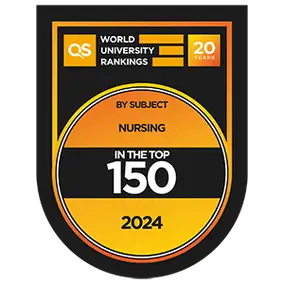
QS Ranking - Nursing
Massey nursing is ranked in the world's top 150 universities by Quacquarelli Symonds (QS).

ShanghaiRanking - nursing
Massey University is ranked in the top 200 universities in the world in the subject area of nursing by the ShanghaiRanking's Global Ranking of Academic Subjects.
Related study options
Bachelor of nursing – bn.
Make a difference in someone’s life every day. Nursing offers diverse employment positions, and many options for professional development and postgraduate study.
Master of Clinical Practice (Nursing) – MClinPrac
Are you passionate about helping people? Massey’s Master of Clinical Practice (Nursing) is a vocationally focused qualification that is a postgraduate pathway to becoming a registered nurse.
Master of Nursing – MN
Massey’s Master of Nursing prepares you for a range of clinical leadership roles in specialty areas. Develop your advanced knowledge and skills in your chosen field through a mix of theoretical and clinical courses.
Postgraduate Certificate in Nursing – PGCertNurs
Take the next step in your nursing career. Massey’s Postgraduate Certificate in Nursing provides registered nurses with the knowledge needed to develop their professional practice within a clinical specialty.
Useful planning information
- Find more courses or qualifications
- Planning your study
- Application process overview
- Semester dates
- Fees and funding
- Scholarships and awards search

Key information for students
Compare qualifications and academic information across different New Zealand institutions. Learn more on careers.govt.nz

IMAGES
COMMENTS
The focus for postgraduate nursing study is the enhancement of clinical nursing practice, leadership qualities, and development of advanced practice through education. Postgraduate study is about investigating, analysing, critically evaluating, reflecting and responding to the challenges posed by practice and the academic environment.
12 Universities in New Zealand offering postgraduate Nursing degrees and courses. Plan your studies abroad now. You are currently browsing our site with content tailored to students in your country
Several postgraduate courses in nursing are delivered via 'distance or block mode' with compulsory face-to-face teaching. This happens in on-campus contact workshops, web-based teaching, relevant readings and other study material. ... The New Zealand Government offers fees-free tertiary study for eligible domestic students. Find out more ...
For a list of educational institutions that offer programmes that are accredited by the Nursing Council of New Zealand (the Council) see the document in the Downloads on this page. While educational institutions may have current Council accreditation, they may not always offer post-graduate nursing programmes on a regular basis.
a. Candidates are required to have gained: An undergraduate Nursing degree, or other undergraduate degree assessed as relevant by the Centre for Health and Social Practice Postgraduate Programme Committee, conferred by a New Zealand tertiary education institution, or a qualification approved as equivalent by the Postgraduate Programme Committee.
The Department of Nursing offers clinically-focused certificates, diplomas, masters', and PhD qualifications for registered nurses. Clinically-focused certificates, diplomas, masters', and PhD qualifications.
Most of our postgraduate nursing programmes require you to be a registered nurse to qualify for entry. For those wanting to move into nursing, completion of our Master of Nursing Practice will make you eligible to sit the Nursing Council of New Zealand/Te Kaunihera Tāpuhi o Aotearoa State Final Examination to become a registered nurse in ...
Several postgraduate courses in nursing are delivered via 'distance learning' and/or 'block mode'. These can include compulsory face-to-face teaching in on-campus contact workshops, web-based teaching, relevant readings and other study material. ... have New Zealand Nursing Council registration or equivalent.
AUT's postgraduate nursing courses are practice-focused and responsive to the changing needs within healthcare services. Study options are flexible: on campus, online, in block mode and at hospital sites around Auckland. ... Practice as a health professional in New Zealand is governed by legislation and a number of 'Responsible Authorities ...
Develop a specialty nursing area and further your knowledge, skills and practice with this postgraduate nursing certificate. The programme consists of 15-point and 30-point courses, which may contribute 60 points towards a Postgraduate Diploma in Health Science, Master of Health Science or Master of Health Practice.